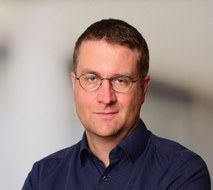Prof. Dr. Daniel Leising
 © Daniel Leising
© Daniel Leising
Mr Prof. Dr. Daniel Leising
Send encrypted email via the SecureMail portal (for TUD external users only).
"Don’t confuse success with excellence" (Ken Burns, 2016 Stanford Commencement Address)
Research interests and publication
Science reform
Our science system is in urgent need of reform in key areas. Together with colleagues, I have developed analyses and solutions for the particularly problematic system parameters. What is needed, among other things, is a de-hierarchization of academic working relationships, an appropriate recording of academic performance, as well as more independent and effective mechanisms for dealing with misconduct.
Boessel, N., Kluge, A., Leising, D., Mischkowski, D., Phan, L.V., Schmitt, M., & Stahl, J. (2023). Anreizsystem, Machtmissbrauch und wissenschaftliches Fehlverhalten. Eine Analyse zum funktionalen Zusammenhang zwischen strukturellen Bedingungen und unethischem Verhalten in der Wissenschaft. https://www.dgps.de/fileadmin/user_upload/PDF/Berichte/Bericht_AMWF20230626.pdf
Leising, D., Thielmann, I., Glöckner, A., Gärtner, A., & Schönbrodt, F. (2022). Ten steps toward a better personality science – how quality may be rewarded more in research evaluation. Personality Science, 3, 1-44. https://doi.org/10.5964/ps.6029
Leising, D., Thielmann, I., Glöckner, A., Gärtner, A., & Schönbrodt, F. (2022). Ten steps toward a better personality science – a rejoinder to the comments. Personality Science, 3, 1-15. https://doi.org/10.5964/ps.7961
Schönbrodt, F. D., Gärtner, A., Frank, M., Gollwitzer, M., Ihle, M., Mischkowski, D., … Leising, D. (2022, November 25). Responsible Research Assessment I: Implementing DORA for hiring and promotion in psychology. https://doi.org/10.31234/osf.io/rgh5b
Gärtner, A., Leising, D., & Schönbrodt, F. D. (2022, November 25). Responsible Research Assessment II: A specific proposal for hiring and promotion in psychology. https://doi.org/10.31234/osf.io/5yexm
Conceptual clarity and theory building
Psychological research still suffers from a lack of conceptual clarity. Often the same terms are used to refer to different things, or vice versa. It is also often unclear how (in-)compatible different theoretical concepts are with each other. All this leads to extensive inefficiency. A stronger formalization of theoretical ideas promises to remedy this. A central challenge here is to find "translations" of the typically "narrative" theories into formal models.
Leising, D., Borgstede, M., Burger, J., Zimmermann, J., Bäckström, M., Oltmanns, J., Freyer, N., Wiedenroth, A., Knischewksi, P., & Connelly, B. (2025). Why do judgments on different person-descriptive attributes correlate with one another? A conceptual analysis with relevance for most psychometric research. Collabra: Psychology, 11(1), 133683. https://doi.org/10.1525/collabra.133683
Leising, D., & Schilling, R. (2021, October 4). A mathematical model of person judgment (part 1): Manuscript. https://doi.org/10.31234/osf.io/rn5y7
Leising, D., Grenke, O., & Cramer, M. (2023). Visual Argument Structure Tool (VAST) Version 1.0. Meta-Psychology, 7 , MP.2021.2911. https://doi.org/10.15626/MP.2021.2911
Leising, D., Borgstede, M., Burger, J., Zimmermann, J., Bäckström, M., Oltmanns, J. R., … Connelly, B. S. (2020, August 8). Why do judgments on different person-descriptive attributes correlate with one another? A conceptual analysis with relevance for most psychometric research. https://doi.org/10.31234/osf.io/7c895
Leising, D., Scherbaum, S., Locke, K., & Zimmermann, J. (2015). A model of "substance" and "evaluation" in person judgments. Journal of Research in Personality, 57, 61-71. doi: 10.1016/j.jrp.2015.04.002
Leising, D., & Zimmermann, J. (2011). An integrative conceptual framework for assessing personality and personality pathology. Review of General Psychology, 15, 317-330.doi:10.1037/a0025070
Interpersonal behavior and interpersonal assessment
The largest part of the subject area of psychological diagnostics concerns the characteristic way in which individuals think, feel and behave. Natural language descriptions of these characteristics play an important role in everyday life (e.g. diagnoses, assessment of potential and performance, risk prognosis) and can have serious consequences (e.g. hospitalization, change of school). In our research, we approach this topic from a basic scientific perspective by attempting to model the complex process that leads to one person describing another person using a particular term.
Heynicke, M., Rau, R., Leising, D., Wessels, N., & Wiedenroth, A. (2022). Perceiver effects in person perception reflect acquiescence, positivity, and trait-specific content: evidence from a large-scale replication study. Social Psychological and Personality Science, 13(4), 839–848. https://doi.org/10.1177/19485506211039101
Kurzius, E., Borkenau, P., & Leising, D. (2022). Spontaneous interpersonal complementarity in the lab: A multilevel approach to modeling the antecedents and consequences of people's interpersonal behaviors and their dynamic interplay. Journal of Personality and Social Psychology, 122(2), 244–264. https://doi.org/10.1037/pspi0000347
Leising, D., Vogel, D., Waller, V., & Zimmermann, J. (2021). Correlations between person-descriptive items are predictable from the product of their mid-point-centered social desirability values. European Journal of Personality, 35(5), 667–689. https://doi.org/10.1177/0890207020962331
Wiedenroth, A., Wessels, N. M., & Leising, D. (2020). There is no primacy effect in interpersonal perception - a series of preregistered analyses using judgments of actual behavior. Social Psychological and Personality Science, Vol. 12, 1437-1445 doi: 10.1177/1948550620969279
Wessels, N. W., Zimmermann, J., Biesanz, J. C., & Leising, D. (2020). Differential associations of knowing and liking with accuracy and positivity bias in person perception. Journal of Personality and Social Psychology, 118, 149-171 doi.org/10.1037/pspp0000218
Daniel Leising beteiligt sich an der Open Science Initiative der Fakultät Psychologie
Roles
Journal of Research in Personality: Consulting Editor (2009-2020)
Personality Science: Methodological Consultant Editor (2020 - 2023)
European Journal of Personality: Consultant Editor (Since 2017)
Journal of Personality and Social Psychology (PPID): Editorial Board Member (Since 2021)
Chairman of the Commission “Incentive System, Abuse of Power and Scientific Misconduct” of the German Psychological Society (2022-2024)
Co-speaker of the Sustainable Science Network (Since 2024)
